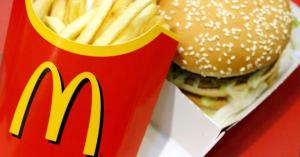
Counting calories isn’t a simple equation, because what goes in is not always equal to what goes out. Imagine you have a caloric limit of 2,000 calories. You don’t want to chow down on 2,000 calories worth of cake and donuts. Rather, you want to consume 2,000 of healthy veggies, fruits and proteins, otherwise considered natural foods. Calories do matter, and it’s important to pay attention to the quality of calories going in.
So what is a calorie? According to Nerd Fitness, a calorie is a unit of energy or heat measurement. While all calories provide the same amount of energy (meaning all calories are technically the same), Authority Nutrition reminds you that your body is a hugely intricate system with some pretty complex lanes to process energy and keep everything in balance. Different foods go through different processes, causing the amount of energy burned to vary. Certain foods require much more energy to metabolize, making the caloric impact less in the end than calories that don’t require as much energy to process, like refined grains and processed cheeses. Additionally, different foods affect the brain and hunger signals differently.
Videos by PopCulture.com
>> Read more: 15 Dinners Under 350 Calories

To put this concept in perspective, say you want to look smokin’ hot in that bikini this summer. Your mission is to lose weight and tone. You decide to cut 500 calories out of your diet, but not change what you eat. Instead of 2,000 calories, you are now consuming 1,500 calories of fast food, Twinkies and soda. Sure, you might start losing weight, but you won’t see fat loss, which is the key. Remember that certain foods are formulated to make you eat more. They are packed with calories but don’t contain the nutrients you need, telling your brain that you’re still hungry but you’ve already had your 1,500 calories for the day.
The experts at Personal Trainer Food say that putting a number like “calories” on your food isn’t going to be effective in your fitness journey. In the past, Americans didn’t have nutrition labels, and yet they were arguably healthier than Americans today. This is because of the type of food they put into their bodies: Natural foods. There weren’t processed foods and almost everything was homemade. You must avoid foods containing added sugars, high fructose corn syrup, enriched white flour and preservatives, which are all ingredients that are detrimental to your diet but oftentimes overlooked.
>> Check out this article for 13 Easy Ways to Burn 300 Calories Daily.
Different foods garner a variety of responses and reactions in your body. For example, protein requires more energy to metabolize, boosts your metabolism and reduces your appetite, meaning you eat less and are burning more energy to consume it. The bottom line is that counting calories isn’t the key to losing weight, although it can be helpful. A calorie doesn’t have one single definition because their sources vary in effects on hunger, energy required to digest and messages sent to the brain about hunger and cravings. Rather than focusing on the number of calories, focus on changing your food selection and choose foods that will affect your body positively. Check out this article for ways to take baby steps toward clean eating.
>> Read more: Trick Your Metabolism Into Burning More Calories
Related Posts
-

WEST HOLLYWOOD, CA – APRIL 19: Actress Shannen Doherty and her husband, Kurt Iswarienko attend Jennie Garth's 40th birthday celebration and premiere party for "Jennie Garth: A Little Bit Country" at The London Hotel on April 19, 2012 in West Hollywood, California. (Photo by Angela Weiss/Getty Images)




